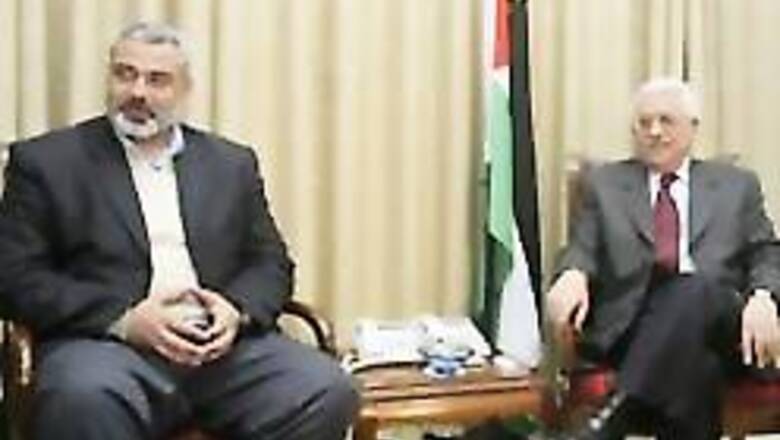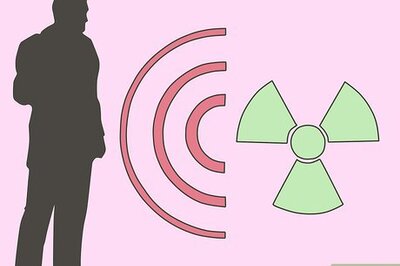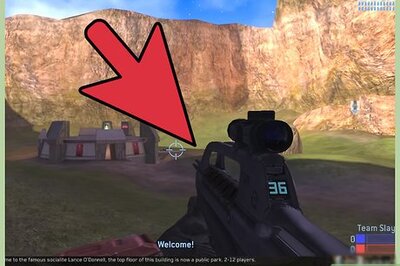
views
Gaza City, Gaza Strip: Hamas presented its choice for Palestinian prime minister - a pragmatic former university administrator - and the Islamic militant group reached out to other factions, including Fatah, to join a broad-based Cabinet that might stand a chance of gaining international approval.
Palestinian leader Mahmoud Abbas and Ismail Haniyeh met for more than two hours on late Monday, but the expected official designation of the Hamas leader as prime minister was put off.
Haniyeh's appointment is just a formality, since Hamas won last month's election by a landslide and has an absolute majority in the new parliament.
But Haniyeh said he wants to form a broad government "that can shoulder its responsibilities in the political area and internal issues" — partly to deflect world criticism that brands the Islamic group as a terror organization.
So far Abbas' party Fatah has refused to join. Abbas wants Hamas to accept interim peace accords with Israel, but Hamas is resisting — making another meeting necessary for both sides.
Haniyeh will have five weeks to form a government, but another Hamas leader, Mahmoud Zahar, who spent the Monday meeting with other factions, said the process would take only two or three weeks.
After meeting Zahar, Islamic Jihad leader Sheik Nafez Azzam said the group, which boycotted the election, would not join the government.
Even before he takes office, Haniyeh — a relative moderate by Hamas standards — has been shunned by Israel, the US and the Europe Union. Israel froze the transfer of funds to the Palestinian Authority, and Western nations threatened to halt hundreds of millions of dollars of vital foreign aid when Haniyeh takes office.
Yuval Diskin, head of the Shin Bet security agency, said Monday that a Hamas entity next to Israel is a 'strategic threat'. He told a parliamentary committee that Hamas could invite extremist Islamic terror groups like al-Qaida and Hezbollah to operate in Palestinian areas.
"A Hamas state on the borders of Israel is a real threat. This will be a radical Sunni state that radical forces can reach from around the world," he said.
Acting Israeli Foreign Minister Tzipi Livni called for other nations to work with Israel to isolate Hamas.
"There is a need for the international community to have a united front regarding the legitimacy of the Palestinian Authority in the Hamas era," she said.
Israel's decision to freeze transfer of tax money collected for the Palestinians drew criticism Monday from the UN envoy to the Middle East, Alvaro de Soto.
In a statement, he said the move was 'premature' and noted that the money belongs to the Palestinians 'and should not be withheld in any case'.
Haniyeh also criticized the freeze.
"The Israelis are trying to starve innocent people by taking money from our taxes, and we are going to fight this by all legal means," he said.
"This collective punishment will not break the determination of the Palestinian people."
Israeli official Raanan Gissin rebuffed charges that Israel was breaking the interim peace accord that mandates handing over the funds.
He said Israel is not obligated to transfer funds that could be use for terrorism, and Israel is not obligated to follow the agreement because 'Hamas does not respect it'.
In parallel with the politics, Israeli forces hunted militants in the West Bank city of Nablus.
Early on Monday, soldiers shot and killed Ahmed Abu Sharik, 30, Islamic Jihad's top commander in the region.
Palestinian hospital officials said 23 people were wounded in clashes with Israeli forces in Nablus on Monday.




















Comments
0 comment